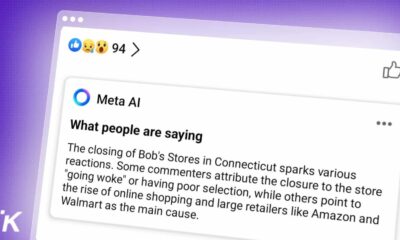Facebook is still tracking your iPhone – here’s how to stop it
Of course Facebook found a loophole it can exploit.

Just a heads up, if you buy something through our links, we may get a small share of the sale. It’s one of the ways we keep the lights on here. Click here for more.
The recent iOS 14.5 update had some pretty significant changes. One of the biggest changes was requiring apps to allow users to opt-out of an app’s location tracking. This was a big hit to apps like Facebook whose business model is based on tracking user data. Well, Facebook has already found and exploited a loophole in the new policy.
According to Zak Doffman, a cyber security and privacy risk expert, and founder/CEO of Digital Barriers, Facebook will continue to track your location, even if you tell the app to never do so. The way they are doing this is an overt attack on our rights as customers.
Despite requests to not collect location data, Facebook is still doing so using metadata found in iPhone images uploaded to the site. An iPhone tags images with GPS data when they are taken. Facebook gains access to that data once an image is uploaded. The social media giant then strips the data and keeps it, with a blatant disregard for customers’ requests for privacy.
So how can you stop Facebook from collecting your location data?
Unfortunately, there’s no real way to stop Facebook from collecting this data. The company is intent on collecting all it can, despite what its users actually want. The only way to prevent your data from being collected is to stop it at the source.
There are a few ways to accomplish this:
- Never allow tracking while using iOS 14.5 (how to disable can be found here)
- Don’t upload images with GPS data (you can use something like iVerify to strip that data)
- Disable location sharing with Facebook on your phone (how to disable)
- Use a browser instead of the mobile app
It looks like Facebook isn’t going to give up access to our data, even if it has to use loopholes like this. Fortunately, there are apps like iVerify that will give you tools to strip an image’s metadata before it is uploaded.
Still, this is a workaround that we shouldn’t be forced to use. Users should be able to keep all of their information private without having to worry about Facebook finding and utilizing abstract loopholes.
Have any thoughts on this? Let us know down below in the comments or carry the discussion over to our Twitter or Facebook.
Editors’ Recommendations:
- Facebook is teasing pay-per-view sports events on the platform
- Facebook has copied yet another feature from Twitter
- Instagram now lets you mute audio and video on Instagram Live
- After almost four years, Twitter will soon open up verification applications again



























